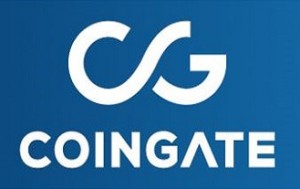Interview with Dave Jevans, CEO of CipherTrace
Interview with CipherTrace CEO on the opportunities in the compliance sector for cryptocurrency, and how CipherTrace aim to make crypto safe.

The degree of anonymity within the Bitcoin network has always been misunderstood. With that, the degree of anonymity that users enjoy with any cryptocurrency is overestimated often. When there is contact between crypto and fiat, the issue becomes even trickier. Public addresses can be tied to bank accounts and the Know Your Customer (KYC) on crypto issue takes on a whole different dimension. Like everything else, there are positive aspects and negative aspects of this KYC by other means on crypto, and there is increasing demand for expertise to map public addresses out in order to look for bad actors.
CipherTrace is one of the companies that can provide this kind of expertise. It recently signed a deal with Rakuten to integrate cryptocurrency payments on that platform. Therefore, we decided to interview CipherTrace’s CEO, Dave Jevans to get a better insight into the capabilities and limitations of compliance companies in the space.
CipherTrace Compliance Opportunities in Crypto
BitcoinChaser: As the CEO of CipherTrace, what can you tell us about the opportunities in the compliance sector for cryptocurrency?
Dave Jevans: Countries around the world are implementing regulations that require compliance by the operators of cryptocurrency businesses, similar to those that fiat-based business must adhere to. This creates a large and growing global market for compliance solutions. However, these solutions are very difficult to build, and the data needed to make them functional is hard to find.
Compliance and Cryptocurrency Adoption
BC: Is compliance the missing piece that will finally bring mass cryptocurrency adoption?
DJ: Compliance technologies combined with regulatory frameworks and enforcement will bring large scale players into the market (the so-called “institutionalization of cryptocurrencies”). These are large banks, trading firms and marketplaces. This will bring cryptocurrency to tens of millions of people who today are fearful or ignorant about them.
The Mechanics of On-Chain Anti-Money Laundering (AML)
BC: How does on-chain AML work?
DJ: On-chain AML works by identifying counterparties and their risk in real-time during transactions and transfers. For example, if coins are stolen from an exchange or an individual, these can be tagged and traced. Then, if they are deposited at an exchange, they can be frozen and eventually returned to their rightful owner.
AML on Crypto for Companies That Deal With Fiat
BC: Are AML and other compliance services basically a tool that only entities dealing with the fiat side need?
DJ: No. AML and compliance services are going to be required by every commercial entity that sends and receives cryptocurrencies. This includes crypto-to-crypto services. FinCEN in the US has declared that they view cryptocurrencies as fungible with fiat, and therefore subject to the same regulations such as AML and Know Your Customer (KYC). FATF (the Financial Action Task Force) in Europe is pressing towards a similar policy for all of Europe. Soon, most countries will adopt similar regulatory viewpoints.
Restricting the Use of Cash
BC: What do you think about government initiatives in countries like France to restrict the use of cash?
DJ: It is important to preserve some anonymous or pseudonymous payment mechanisms. These can be digital cryptocurrencies or cash. The restriction of cash transactions can place a heavy burden on small businesses if taken to the extreme. That said, I do believe that countries will issue their own stable coins as a replacement for cash. Why privatize money to credit card companies, when stable cryptocurrencies can be created and issued by sovereign governments, at a lower cost to those who use it?
With cryptographically controlled privacy mechanisms, it is possible to have both anonymity and responsible disclosure of source of funds for legitimate purposes such as criminal or terrorist investigations and AML compliance. This is the direction that CipherTrace is working on for the future growth of cryptocurrencies globally. We believe that there are technological and regulatory solutions that can preserve privacy while enabling security and compliance.
Is On-Chain Compliance the New Big Brother Tool?
BC: If companies like CipherTrace act as a de facto overview mechanism of what is happening on-chain and how that interacts with the fiat system, who is in charge of keeping an eye on how companies in your sector use the data that you collect?
DJ: There are multiple regulations that all companies who collect data are subject to. GDPR in Europe is a good example of this. That said, CipherTrace does not collect data about individuals.
Power and Corruption
BC: Could we potentially see the same kind of excesses that social media platforms and data giants like Google have incurred in a few years down the line, involving blockchain compliance companies?
DJ: No.
Compliance for Bitcoin Maximalists
BC: In the ideal Bitcoin Maximalist scenario, fiat is replaced, and Bitcoin becomes the default cryptocurrency. How do you see demand for the services you offer, shifting in the event that we get closer to that scenario?
DJ: In that scenario, CipherTrace and our competitors become unicorn companies with huge valuations. But it is up to us, as former cypherpunks and privacy advocates, to build the next generation of anti-money laundering and investigation capabilities on a platform of cryptography, potentially using zero knowledge systems, to enable legitimate tracing and identification, while preserving the privacy of transaction for the 99.9% of people who will use cryptocurrencies for their day-to-day transactions.
Remember, Visa and Mastercard and your bank have far more visibility into your transactions today than any cryptocurrency tracing firm does for your crypto transactions.
Compliance Across Different Chains
BC: How can you track money laundering that takes place across multiple blockchains via cryptocurrency exchanges that have no connection with the fiat system?
DJ: This is tricky and requires time-and-value-based correlation. There are other indicators which can be combined with cross-chain data as well.
Compliance on Lightning Network
BC: How have you adjusted to the advent of Lightning Network and the possibility of atomic swaps?
DJ: Lightning offers a good approach to scaling bitcoin, and there may eventually be large enough markets with sufficient liquidity for atomic swaps to become widespread. But I think will take many years. Also note that regulations will apply to atomic swap systems and decentralized exchanges.
CipherTrace’s Partnership with Rakuten
BC: Following the announcement of your partnership with Rakuten and your extensive experience working on both the fiat and crypto sides, do you think that there will ever be harmony between both systems or do you rather believe that one system will become subservient to the other? Why?
DJ: I believe that both systems will co-exist for the next hundred years. The existing financial system has been built up over hundreds of years and will not go away. Neither will banks. Global economic growth and the improvement of infrastructure such as roads, buildings, emergency services, homes, cities and schools have all been built with loans in fiat. Cryptocurrencies may eventually be the way that money is transferred, instead of centralized networks such as SWIFT and the national ACH networks.







